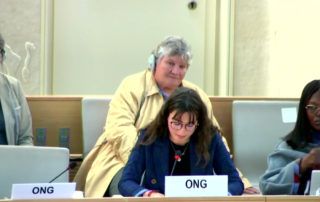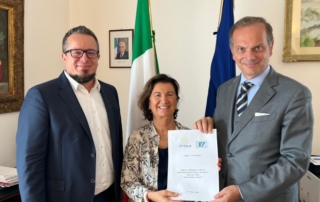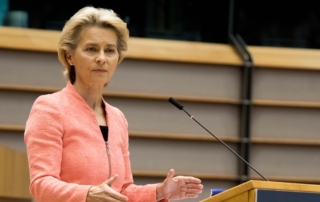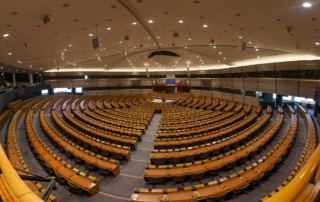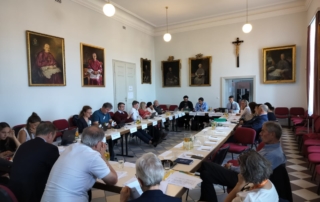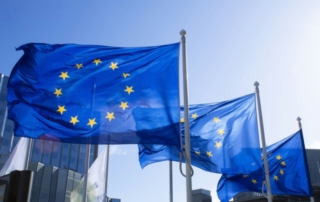Economy of the Family
The areas in which a family operates are relevant not only from a social standpoint but also from an economic one. Like any business, a family operates through organisation, professionalism, and efficiency. Family members conduct their family activities free of charge, producing many positive externalities to their members and to society as a whole. Therefore, a family can be classified as an economic entity, and its function is original and necessary to achieve the common good in areas of constitutional importance (e.g. education and care). Stronger families do not just consume good and services, but also finance the banking system with their savings and help relieve distressed public finances thanks to their intergenerational solidarity.
Family is a relevant economic actor that should be supported as much as companies in its role towards society.
Statement at UN: “We need an international recognition of the function of the family”; co-signed by FAFCE
Brussels, 26th September 2024 A joint statement was delivered on Wednesday 25th September at the United Nations in Geneva about the function of the family. Co-signed by FAFCE and supported by several member organisations, it was said during the
PRESS RELEASE FAFCE co-founds F7; Meets with Minister Roccella
Brussels, the 24th of September 2024 FAFCE has co-founded the Family 7 (F7) in collaboration with seven prominent organisations, one from each of the G7 states. Today in Rome, the President of FAFCE, Vincenzo Bassi (right), and President of
European Parliament re-elects Von der Leyen as President of European Commission
Brussels, 18th July 2024 Today in Strasbourg, MEPs voted to re-elect Ursula Von der Leyen as the President of the European Commission. She was granted a second term by 401 votes in favour, 284 votes against, and 15 abstentions.
Metsola elected as President of the European Parliament
Brussels, 17th July 2024 Yesterday the European Parliament elected its President. Roberta Metsola MEP of Malta's Nationalist Party (EPP) was elected to a second term during July's Strasbourg plenary, the last until the summer recess. FAFCE warmly congratulates President
PRESS RELEASE FAFCE writes open letter to the elected MEPs for the 2024-2029 European Parliament legislature
Brussels, 10th June 2024 Today the Federation of Catholic Family Associations in Europe (FAFCE) has written an open letter to all elected MEPs after the 2024 European Parliament elections, signed by FAFCE President Vincenzo Bassi on behalf of its
PRESS RELEASE FAFCE develops policy toolkit ahead of new European Parliament legislature
Brussels, 5th June 2024 FAFCE has developed a policy toolkit for elected Members of the European Parliament and EU institutions for the new legislative period, starting after this weekend elections (6th-9th June) all over EU Member States. More than
PRESS RELEASE Integral ecology needs at its core the recognition of the family
Brno, 15th May 2024 Today, on International Day of Families, FAFCE passed a resolution on the centrality of the family in the ecological transition. Hosted by FAFCE's Czech Member organisation in Brno, the Spring Board Meeting's resolution connected ecology
Easter message from FAFCE
Brussels, 28th March 2024 Dear Friends, This week we celebrate with our families the mysteries of the passion, death and resurrection of Christ. With this newsletter, we wish you a peaceful Easter and also reflect on some of the many
FAFCE stresses family-work balance priority at Tripartite Social Summit
Brussels, 21st March, 2024 On Wednesday 20th March, representatives from the EU institutions met at the Tripartite Social Summit. Co-chaired by the President of the European Council and the President of the European Commission (and featuring trade union and
FAFCE co-hosts Investing in the Family, Investing in the Future conference
Brussels, 20th March 2024 FAFCE co-hosted a conference yesterday entitled Investing in the Family, Investing in the Future. Held at the European Parliament in Brussels, the conference emphasised the significance of investing in family policies for a brighter future.

